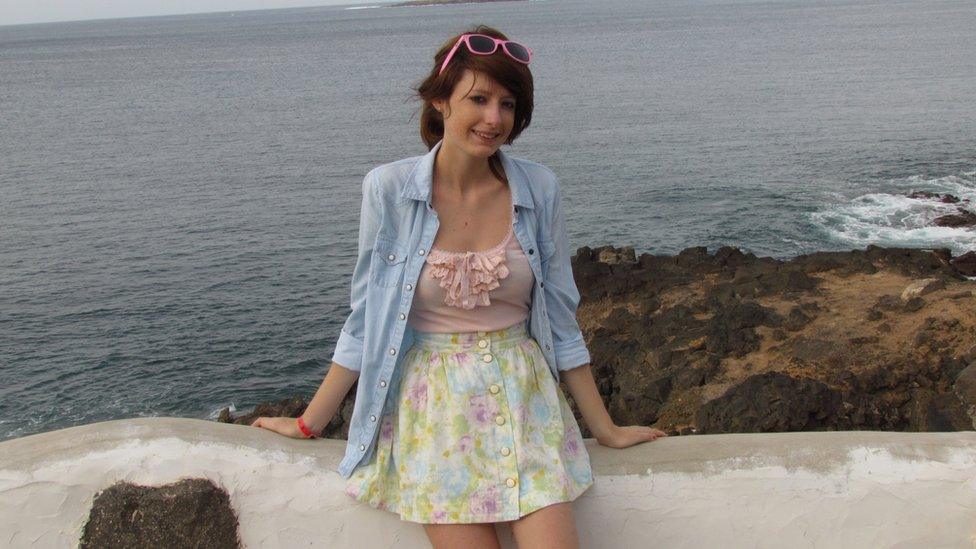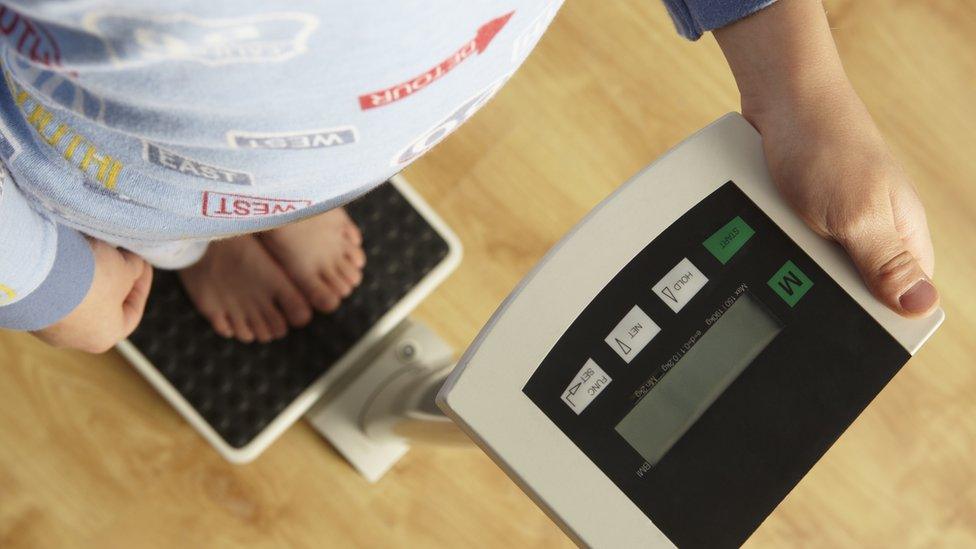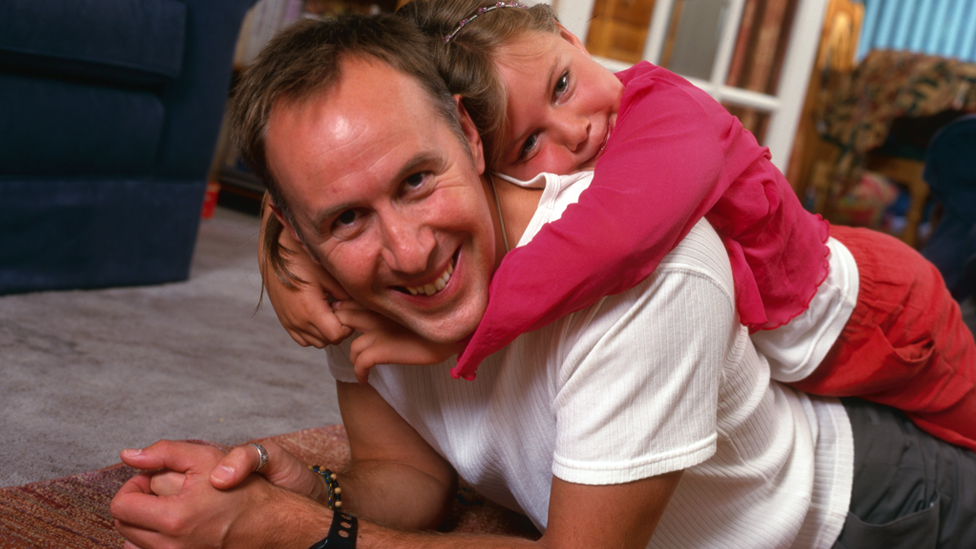Anorexia: 'I needed therapy not just a food plan'
- Published
Jordan Holt on her long road to recovery
A woman who was diagnosed with anorexia at 16 said her health deteriorated for five years because she was not offered psychological support.
Jordan Holt, 23 from Penarth, Vale of Glamorgan, said for years her condition was treated as a weight issue rather then a mental illness.
A review into Wales' child and adolescent eating disorder service, external was launched this week.
The Welsh Government has been asked to comment.
"Living with an eating disorder is essentially hell," she said.
"You feel trapped in your own mind, constantly hating yourself, [thinking] that you don't deserve the most basic thing in life which is to eat.
"I actually felt it would be easier to not be here. If I was dead it would be easier on everyone. That seemed like a better option than continuing to live with my eating disorder."

Jordan said celebrity magazines are not responsible for eating disorders but perpetuate a thin ideal
Ms Holt was 15 when her mother noticed she had lost weight and took her to the doctor.
"They weighed me and said, 'she's a bit underweight, go away and eat a bit more'," she said of the appointment.
But Ms Holt had other plans. And starting sixth form meant she had more freedom which she used to further lower her food intake.
It all came to a head on a school trip to Iceland when she did not eat and teachers noticed.
On her return she was confronted by her mother, who asked if she had a problem with food.
Ms Holt denied it but was again taken to the doctor which led to a referral to the NHS' Child and Adolescent Mental Health (CAHMS)., external service.
But the treatment was ineffective and she added: "I was very much treated as if I had a weight disorder and not a psychological one.
"I saw dieticians, I was given a meal plan, I was weighed but never given psychological support."
It was not images in celebrity magazines driving her to starve herself, with Ms Holt saying: "it's not caused by wanting to be in Vogue or wanting to look like Kate Moss but they don't help."
She put it down to a "lot of self hate, a lot of not feeling worthy, a way or punishing myself".
"I have a lot of self doubt," she said.
"I never feel that I will do well enough in school or that I'm as good as other people or that good things will happen so food became the thing that I can control.
"I never had any external pressure, my parents were great, it was all pressure put on myself to achieve."
By the time she began studying for her A-levels, her mother would turn up with a packed lunch every day and try to make her eat it supervised in her car.
"I would cry, I would scream, I would refuse to do it. This would go on at every meal," she said.

Jordan is studying for a master's degree in clinical psychology at Swansea University
She eventually began gaining weight and was discharged from CAMHS, but added: "Internally I was just as disordered as I was before. "
Ms Holt left home to study at Exeter University but just four weeks in had already lost all the weight she had gained over 18 months, describing herself as "really, really unwell."
She fell into a relapse which saw her return home to her parents.
Ms Holt began weekly appointments with a dietician but the focus remained on food and weight gain, with her adding: "I used to sit there in stony silence and refuse to talk."
She started her degree again, this time at Cardiff University, but admitted she "dropped off the radar... I was functioning but I wasn't really living. "
It was not long before she was heading downhill again, joining a gym and decreasing the amount of food she ate.
She believed she was going to hit rock bottom again and made an appointment with her doctor.
This time she was transferred to a high priority adult service and finally got psychological treatment.
"It was the first time I was offered therapy," she said.
"They helped me realise I could live without anorexia, it wasn't my life, it wasn't part of me, I could recover."

Despite her battle with anorexia, Jordan has graduated from Cardiff University with a first class degree
Ms Holt received cognitive behavioural therapy, external and acceptance and commitment therapy, external and began to feel well.
In the past year she has graduated with a first class honours degree and is continuing to study at Swansea University with a goal of becoming at clinical psychologist.
She still has "bad body image days" but is living a life beyond anorexia.
"Looking back on the last seven or eight years, if someone had offered me that in the first place, addressed the thoughts I was having, I might not have wasted so much of my life in the grips of this illness. I would have got my life back quicker if someone had done that when I was a child," she added.
"It needs to be treated as a psychological illness and that's something that's not happening with young people."
Health secretary Vaughan Gething announced the review, external which will be undertaken by Dr Jacinta Tan and run until the autumn.
It followed a petition, external highlighting a disparity in funding between adult and child services.
Eating disorder charity Beat welcomed the review, adding it hoped it would contribute to reducing waiting times and improve access to specialist treatment.
- Published24 July 2017

- Published24 July 2017

- Published5 February 2018
